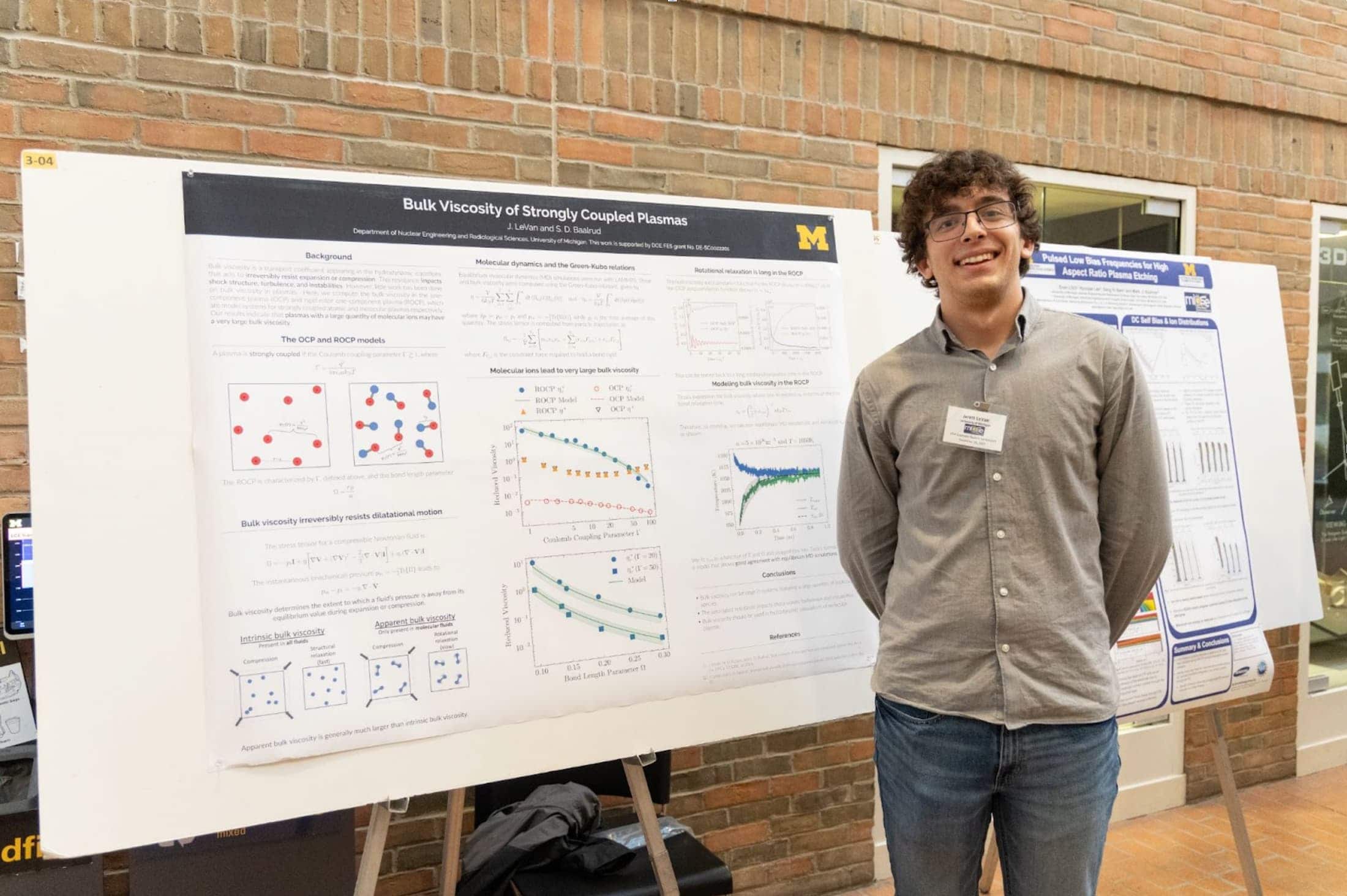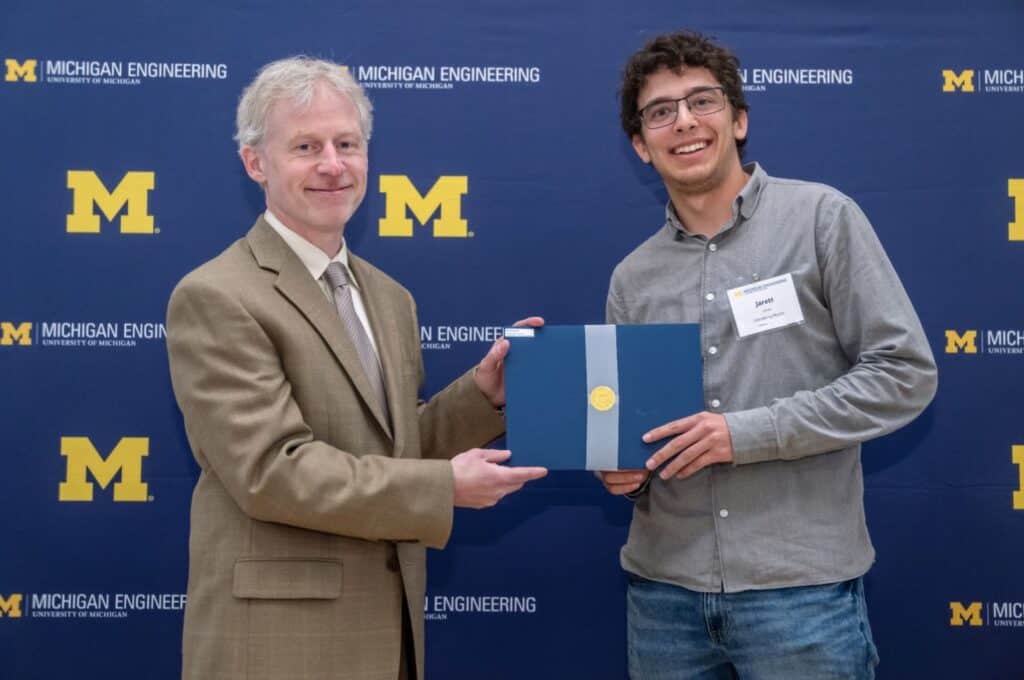
Jarett LeVan awarded NNSA fellowship to advance kinetic theory of the liquid state
The NERS PhD student’s work supports national security goals through inertial confinement fusion research.

The NERS PhD student’s work supports national security goals through inertial confinement fusion research.
Jarett LeVan, a PhD student in the Department of Nuclear Engineering and Radiological Sciences at the University of Michigan, has been awarded a Department of Energy National Nuclear Security Administration (DOE NNSA) Stewardship Science Graduate Fellowship. The prestigious fellowship supports students pursuing research critical to the DOE’s national security mission, including high energy density physics, nuclear science, and materials under extreme conditions.
LeVan works with NERS professor Scott Baalrud to develop a first principles theory of the liquid state. While that goal might sound straightforward—deriving equations that describe how a liquid evolves in time—it’s a notoriously difficult problem that has evaded a complete solution for over a century.
“The great difficulty arises because liquids are sufficiently dense that particles are under the continuous influence of forces from neighboring particles, but not so dense that they form a lattice,” said LeVan. “They feature strong spatial and temporal correlations, but lack long-ranged order.”
Recent developments in kinetic theory, specifically an approach called mean force kinetic theory, have provided renewed hope. LeVan’s research builds on this foundation in an effort to extend kinetic theory into the liquid regime.
The fellowship will support LeVan’s continued research and includes a summer residency at a DOE national laboratory. He is looking forward to collaborating with scientists at Los Alamos National Laboratory and learning new research methodologies.
LeVan’s work directly contributes to the goals of the Stewardship Science program by improving the theoretical models that underpin inertial confinement fusion (ICF) experiments. These experiments recreate the conditions found in nuclear weapons using high-powered lasers to compress matter into a state known as warm dense matter—a form that behaves much like a liquid.
“The data from these experiments are used to model our nuclear stockpile without testing the warheads themselves,” he explained. “That allows us to ensure national security while avoiding the environmental harm and proliferation risks associated with live nuclear tests.”
LeVan first joined Baalrud’s lab the summer after his sophomore year and quickly developed a strong connection with both the research and the community. “My relationship with Professor Baalrud and the members of his lab, as well as my love for the work, made sticking with the lab an easy decision,” he said.

He also credits the broader NERS community with playing an important role in his academic journey. “I am particularly grateful for Professor Baalrud’s mentorship and all of the opportunities he has provided me,” said LeVan. “I would also like to thank Professor Kuranz for her guidance and numerous helpful conversations.”
“It has been a pleasure to work with Jarett on his undergraduate research projects, where he made fundamental contributions to viscosity in dense plasmas,” said Baalrud. “I’m excited to see what he will do in graduate school.”
Outside of the lab, LeVan enjoys reading and pickleball. Some of his favorite books include The Remains of the Day by Kazuo Ishiguro, Stoner by John Williams, and East of Eden by John Steinbeck.
For students interested in competitive fellowships like the NNSA SSGF, LeVan offered simple but important advice: “Make sure you find a research topic that truly interests you. Your passion will be apparent in the application.”